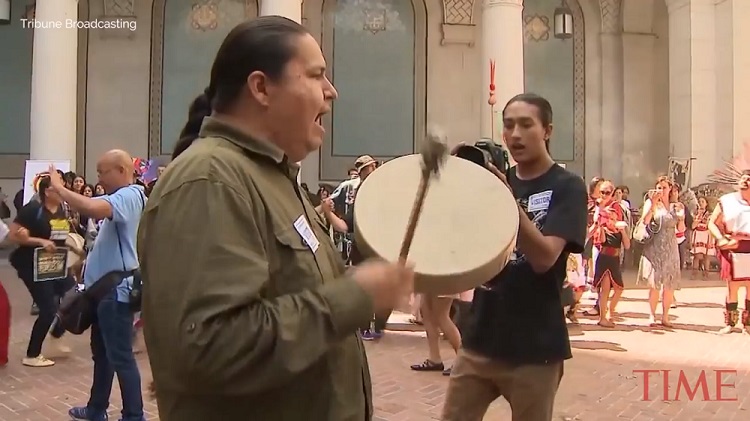Cities, states, and universities across the country have been pushing to drop Columbus Day—a national holiday that celebrates Christopher Columbus’s colonization of the Americas starting in 1492—in favor of celebrating Indigenous Peoples Day.
Los Angeles; Seattle; Denver; Santa Fe, N.M.; and Madison, Wis. are all among the U.S. cities that have replaced Columbus Day with Indigenous Peoples Day. This year, there are more than 70 cities, states, and universities that have dropped Columbus, choosing to recognize indigenous people instead. You can see them all here.
Activists have fought for Indigenous Peoples Day for decades, arguing that Columbus Day, along with statues and other memorializations of Columbus whitewash the brutal history of native enslavement and genocide that represent his true legacy. In his own journal, Columbus wrote of his first encounter with indigenous people on Oct. 11, 1492, in present-day Haiti, referring to them as “servants.”
“They should be good and intelligent servants, for I see that they say very quickly everything that is said to them,” he wrote. “And I believe that they would become Christians very easily, for it seemed to me that they had no religion.” He went on to write about the six native people he would then take as slaves.
Millions of indigenous people were displaced by Columbus, and between his arrival and the Pilgrims’ arrival in 1620, 90% of the native population died, mostly from diseases brought over from Europe. The remaining natives saw their land and culture destroyed by the violence of white Western colonization.
Still today, native communities are a target of institutional racism. In 2016, activists fought the construction of the Dakota Access Pipeline that would run through the traditional lands of the Standing Rock Sioux Tribe. In 2017, native people made up 1.8% of the total missing persons cases reported by the FBI, despite representing just 0.8% of the US population.
Indigenous Peoples Day serves as a celebration and highlights the native communities that have always been here. For those who have fought long and hard to change Columbus Day, Indigenous Peoples Day has become a way to respect and honor those communities.
Source: TMP

